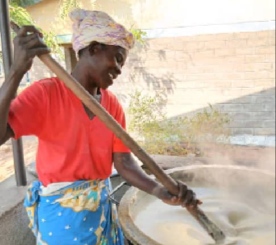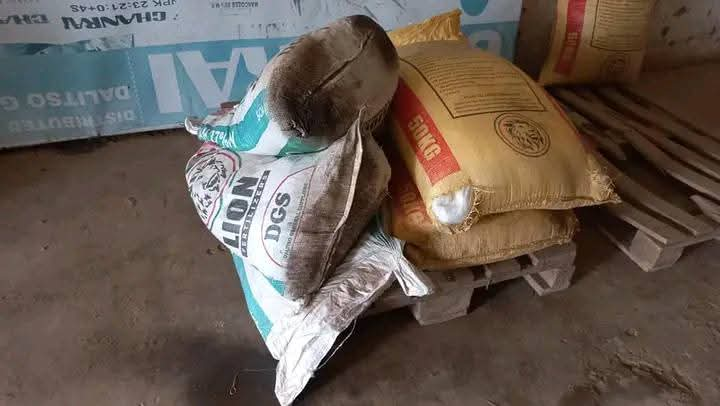By Vincent Gunde
An international organization- Mary’s Meals, says School Feeding Programme (SFP) in primary education is registering positive impact evidenced by the data that is corrected on monthly basis and the performance of programme key indicators such as enrolment, attendance, feeding rate, pass rate, progression rate, and volunteer participation, among others.
Mary’s Meals has a vision of ensuring that all those who have more than they need, share with those who lack even the most basic things, and that every child receives one daily meal in their place of education.
The organization was established to enable people to offer their money, goods, skills, time, or prayer, and through this involvement, provide the most effective help to those suffering the effects of extreme poverty in the worlds’ poorest countries.
Updating the District executive committee (Dec) in Dowa, Mary’s Meals School Feeding Manager Jacob Khumalo, said SFP has the objectives of reducing hunger in children living in poverty who attend school, and increased access to primary education for children living in poverty.
Khumalo said SFP increase progression within primary education by children living in poverty, improved health and well-being of children living in poverty and improved livelihood for disadvantaged smallholder farmers.
He said in Malawi, School Feeding Programme started in 2002 with 2 schools in Blantyre, saying over the years, the programme has grown to 1,297 schools as of June, 2025 (1,160primary schools, 125 ECDs and 12 special schools) in 23 districts.
The Manager said across Malawi, School Feeding Programme is benefiting 1,251,009 learners, the programme is continuous depending on need saying in Dowa Mary’s Meals started in 2009 implementing SFP in 43 schools under Boma, Kanyenje, Chibwata, Kafumphe, Madisi and Kabwinja zone.
He said the programme is feeding 44,096 enrolled learners in Dowa as of June, 2025 data saying Mary’s Meals also promote hygiene and the safeguarding of children and vulnerable adults in the targeted 43 schools.
Khumalo said there are instruments which are used in the identification of schools to benefit from School Feeding Programme such as MVAC report, Agricultural Production Estimates survey, food security/ hunger levels, and school feeding partners, among others.
“In 2024 SFP in Dowa expanded to 3 more schools within the same zone such as Mitembo, Light of Hope and Valitsani, the assessment conducted resulted into the current expansion activities in 43 schools.” He said.
However, Khumalo said School Feeding Programme is meeting challenges in the course of implementation in schools such as insufficient firewood, unavailability of safe water in some communities, poor road network, and absenteeism of volunteers without valid reasons, among others.




